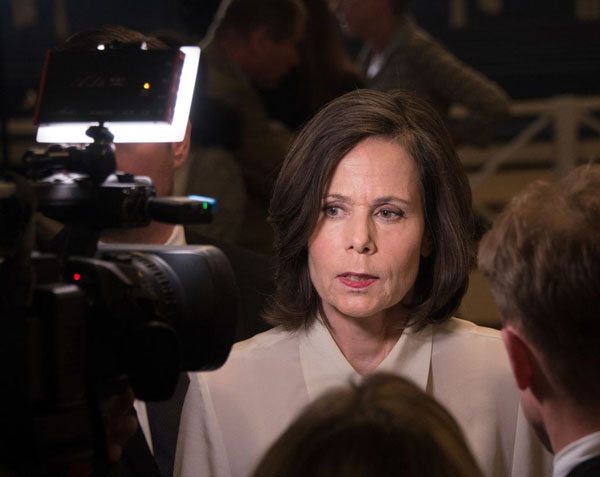
May 5, 2018; Washington Post and New York Times
Tradition has its place. But, tradition wrapped in secrecy that keeps both people and information at arm’s length can lead to problems. Couple this with no plan for filling vacancies as they occur on a board charged with making historically significant decisions. Then, add in a three-decades-long sex scandal, and you have the perfect mix for an uproar of international proportions that reaches from royalty to the world of arts and literature. The Swedish Academy, which awards the Nobel Prize in Literature, will not be awarding a prize for 2018, in response to a crisis that has left the organization with much to sort out.
In a statement supporting the decision of the Swedish Academy, the Nobel Prize organization stated, “The Swedish Academy intends to decide on and announce the Nobel Prize in Literature for 2018 in parallel with the naming of the 2019 laureate. The crisis in the Swedish Academy has adversely affected the Nobel Prize. Their decision underscores the seriousness of the situation and will help safeguard the long-term reputation of the Nobel Prize.”
The Swedish Academy’s only responsibility is for the Nobel Prize in Literature, but part of what has embroiled it in scandal is that the Academy also gives out grant funds, and one recipient of those funds is the art center run by the husband of an Academy member who is now accused of sexual harassment, assault, and misconduct by more than 18 women, going back more than 20 years. The accused, photographer Jean-Claude Arnault, husband of Swedish Academy board member and poet Katarina Frostenson, has denied all charges, which include groping Swedish Crown Princess Victoria at an academy event in 2006. Arnault has also been accused of leaking the names of Nobel winners in advance of the announcements in order to place lucrative bets. Sorting all of this out will not be simple. Frostenson has stepped down from her lifetime position on the academy board.
But, this is not all that is at play in this complicated scandal. The Swedish Academy board had chosen Sara Danius as its permanent secretary (its chief administrator), and she immediately cut ties with Arnault and his center, which they had been funding, and hired a law firm to begin an investigation.
Ms. Danius was not rewarded for her efforts at accountability. Several members of the academy, including some of Ms. Danius’s allies, resigned in disgust over the allegations, and Ms. Danius was herself forced out from the top post, although she remains a member of the academy. (On the same day, Ms. Frostenson also stepped down.)
Sign up for our free newsletters
Subscribe to NPQ's newsletters to have our top stories delivered directly to your inbox.
By signing up, you agree to our privacy policy and terms of use, and to receive messages from NPQ and our partners.
Ms. Danius’s demotion prompted mass protests by critics who said that a woman had been scapegoated for the sexual misconduct of a man, and that Ms. Danius had been punished for trying to introduce openness and accountability to a group that preferred to close ranks.
At this point, the Nobel organization issued its statement, blessing the postponement of the 2018 Nobel Prize for Literature in order to protect the overall reputation of the Nobel organization. Now, according to the Nobel organization, it is time for the Swedish Academy to get its act together. Of the 18 lifetime members of the Academy, only 10 voting members remain and there are no rules to replace members who quit. Clearly, there is a lot that needs to be addressed.
On Wednesday, King Carl XVI Gustaf of Sweden, the academy’s patron, who said he had followed the matter “with great concern,” announced that he had changed the rules to allow resignations, and to allow the panel to replace any member who had been inactive for two years. It was a rare intervention by the monarch, whose role is mostly ceremonial.
“We are bringing in legal expertise and we are going to get better at what we do,” said Mr. Olsson, the new acting permanent secretary. “We must vote in new members, and fast.” He promised increased transparency, and “more and better dialogue” internally and with both the monarchy and the Nobel Foundation.
The academy also promised on Friday that “routines will be tightened regarding conflict-of-interest issues and the management of information classified as secret,” and that “internal work arrangements and external communication will be refreshed.”
There are a lot of lessons to be garnered from this that can resonate in the nonprofit (and for-profit) community. The first is to listen to women when they say they are being harassed and abused and the same name keeps coming up. The second is that operating in secrecy may not be in the best interest of gaining the public trust. The third is that having a succession plan is critical for maintaining an organization. And overall, maintaining transparency so that conflict of interest becomes a non-issue would seem to be in everyone’s best interest.—Carole Levine













